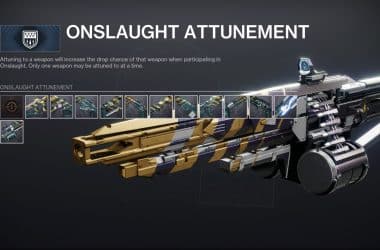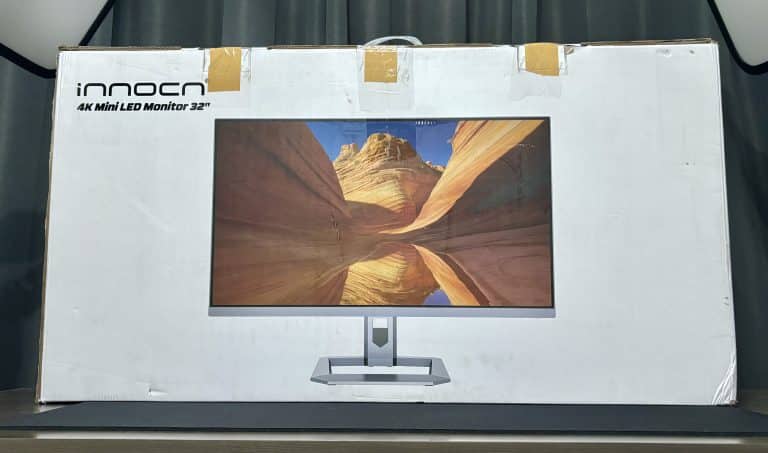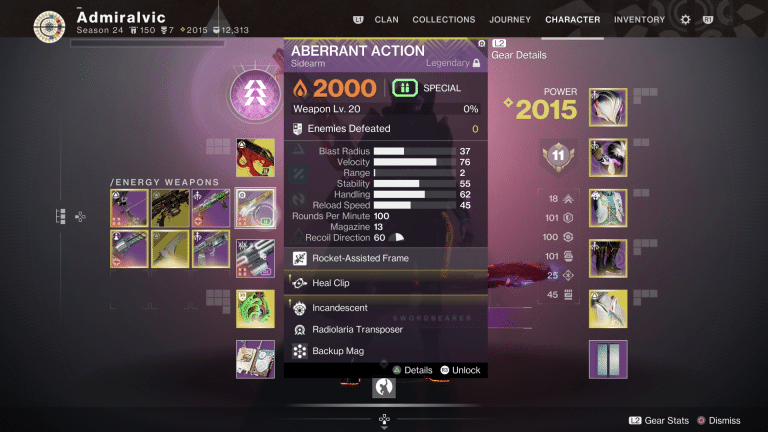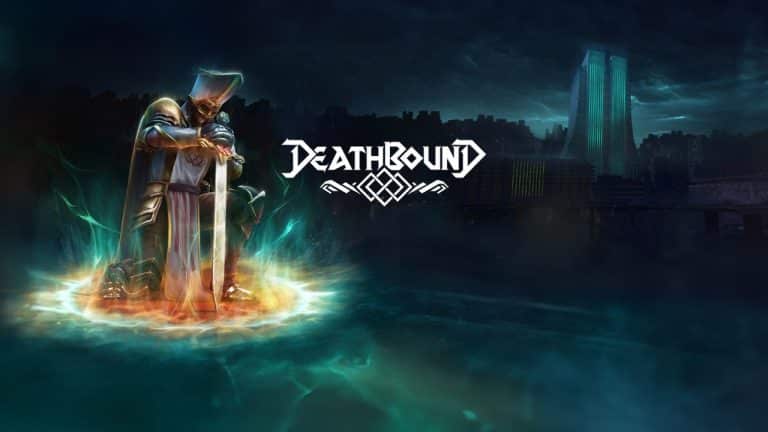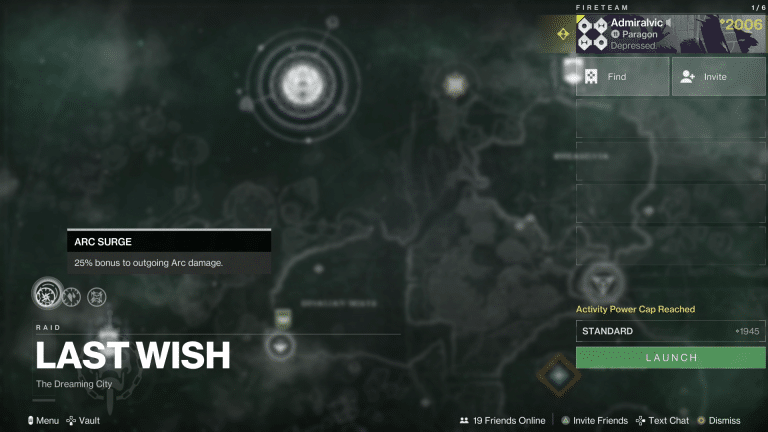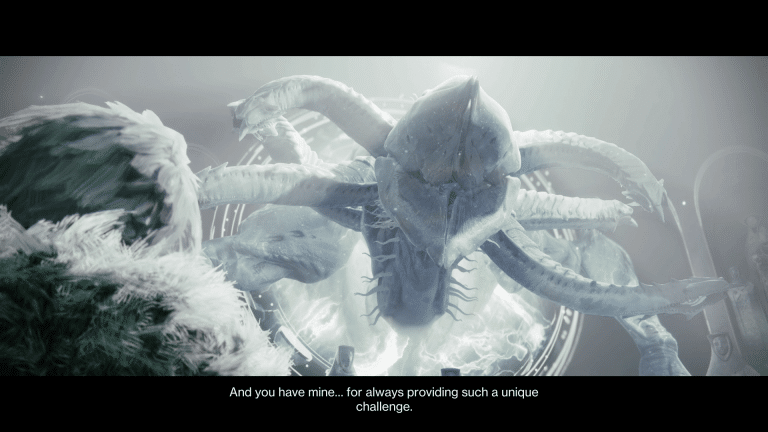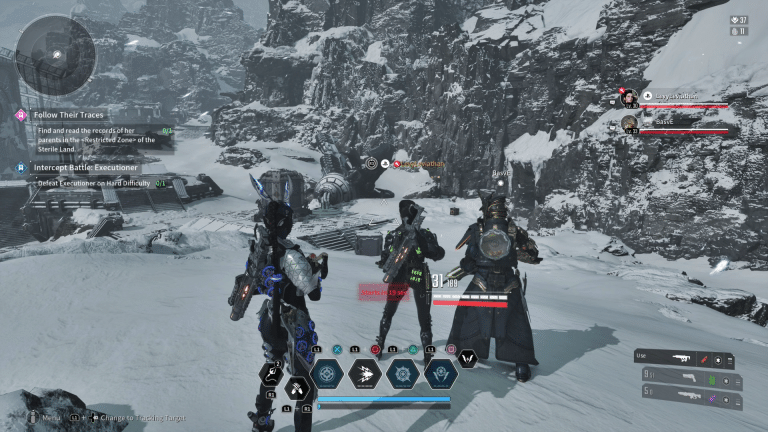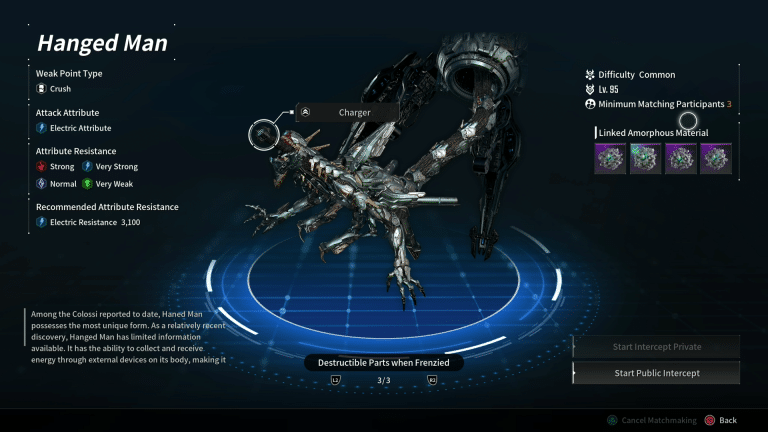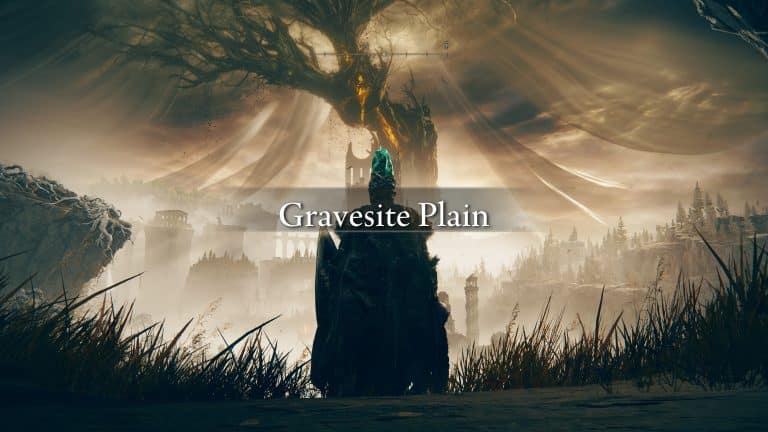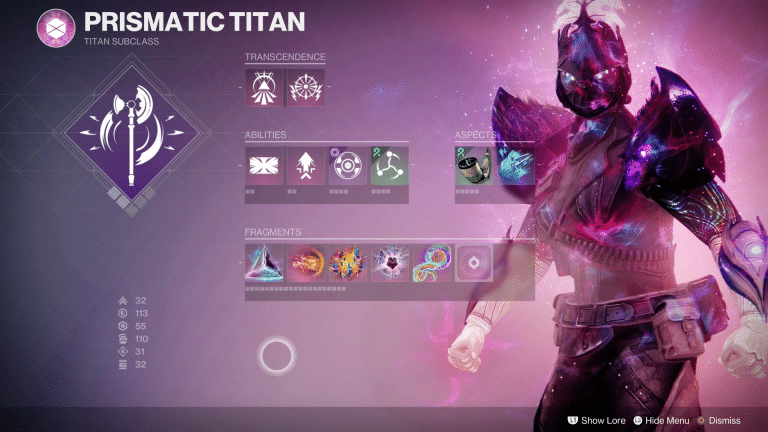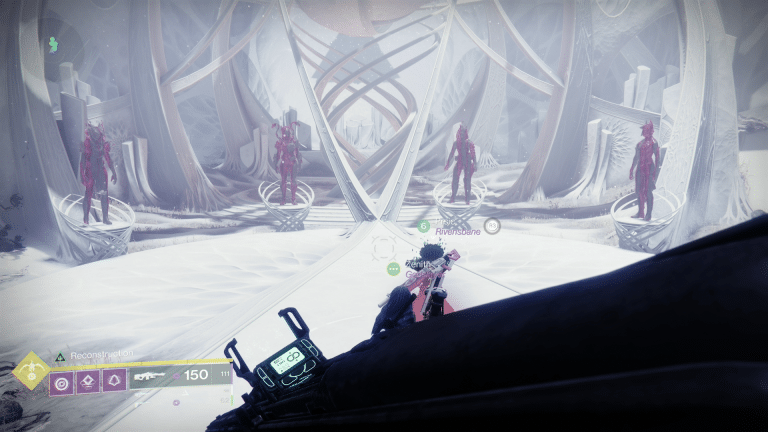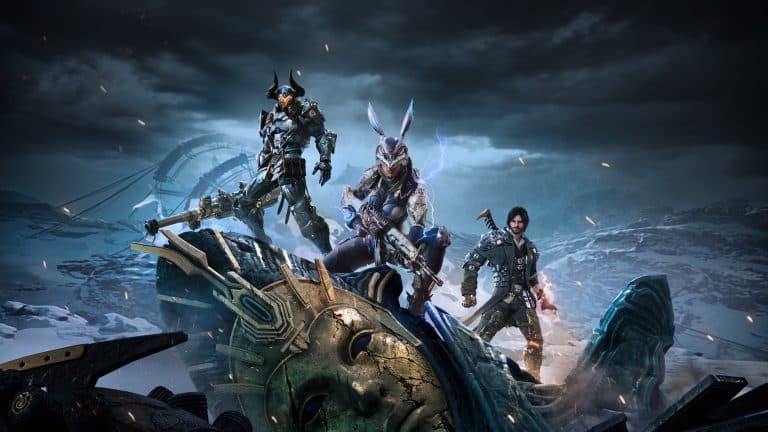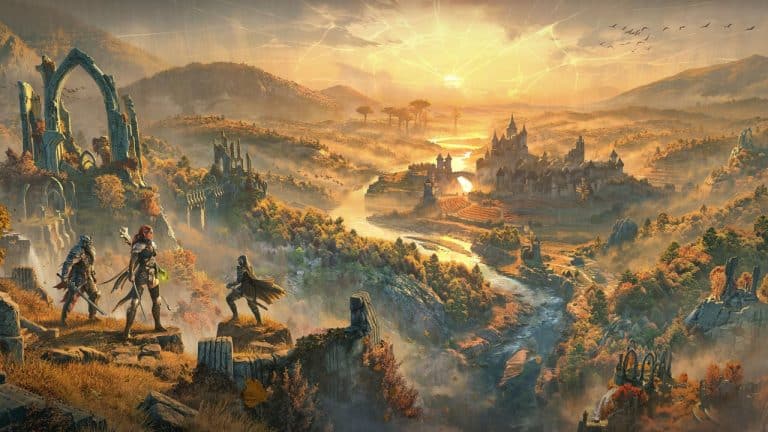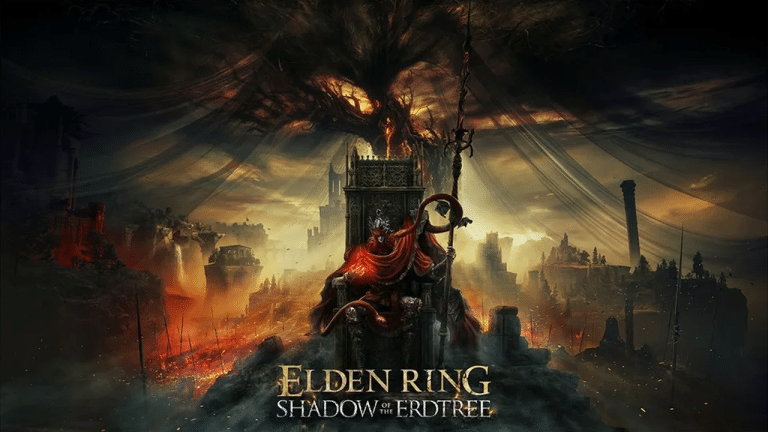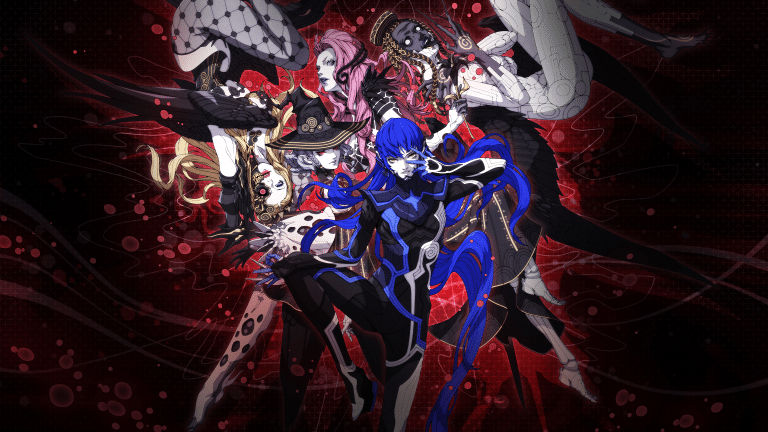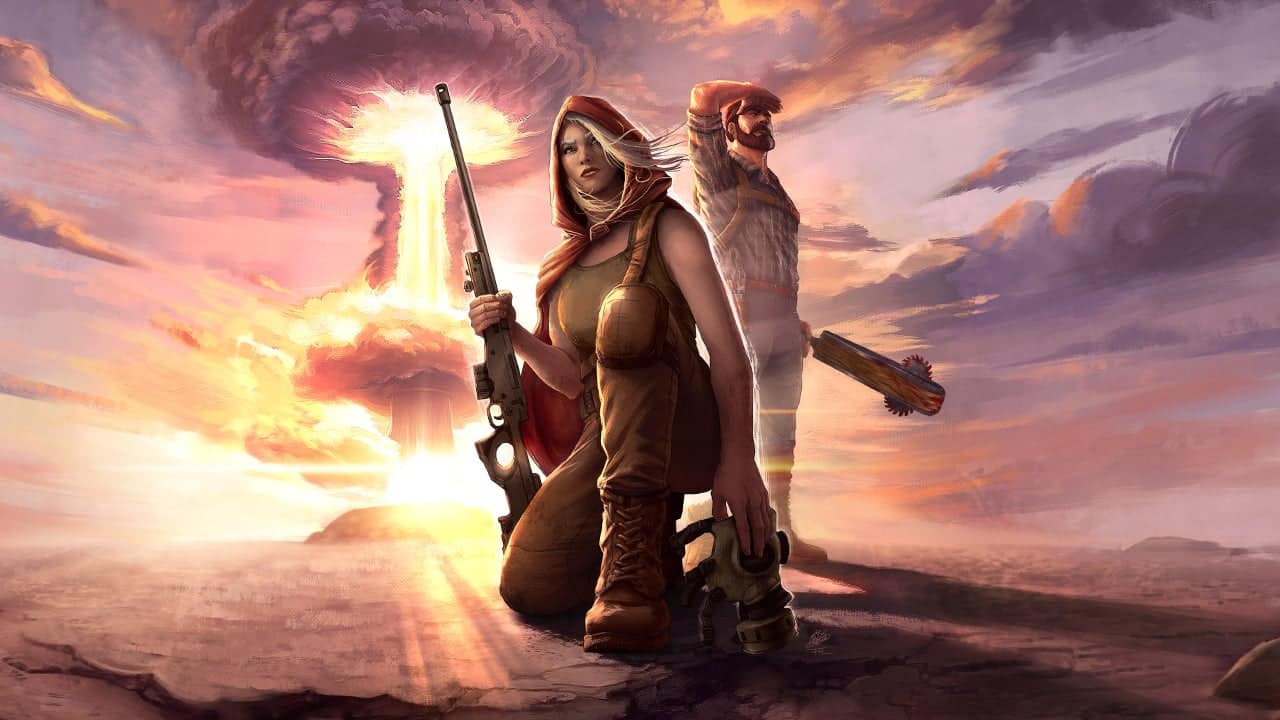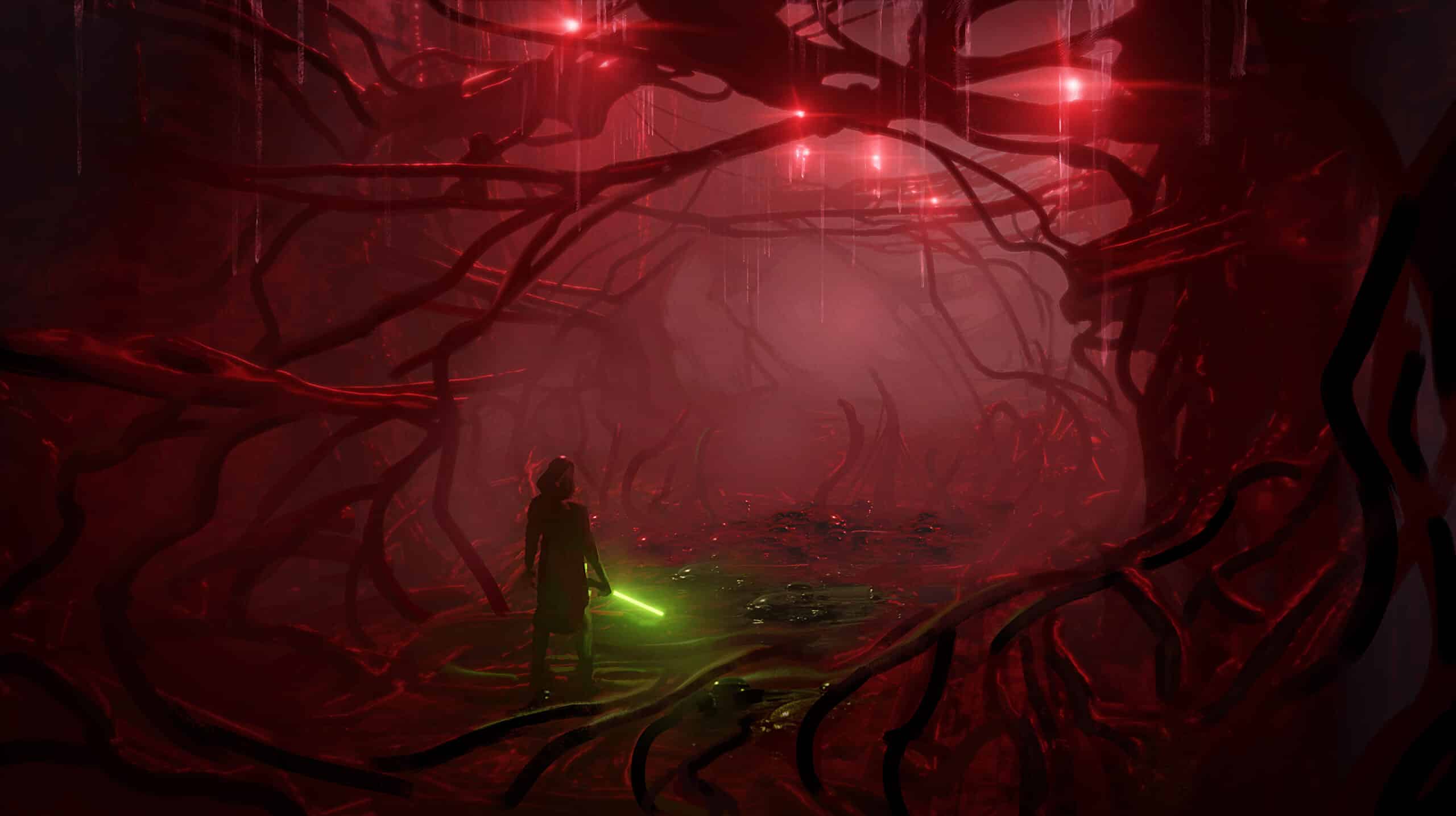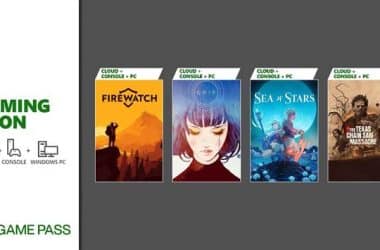Broken Roads presents an enticing concept: a tactical, turn-based cRPG embedded in an apocalyptic Australian Outback and steeped in deep, philosophical choices. It’s a pitch that’s bound to excite anyone who ever spent their earliest gaming years bound to the original Fallout titles. Given the high-caliber games that we have seen trickle out over the years in this antiquated genre – Pathfinder: Wrath of the Righteous, Pillars of Eternity and Disco Elysium, to name a few – the bar is fairly high for newcomers. And Drop Bear Bytes is as new as it gets, with Broken Roads as the Australian indie studios’ debut title.
Broken Roads looks to the cRPGs that came before it and hopes to leave its mark by leaning into the social behaviors and guiding ideals that would undoubtedly arise in the chaotic aftermath of society’s collapse. Depending on the chosen origin – hired gun, surveyor, barter crew and jackaroo – players will be given certain attribute bonuses and skills before falling into one of four starting points. As you might have guessed, the hired gun background provides a boost to shooting capabilities right out of the gate, whereas the jackaroo kicks things off with an added bonus in tinkering and biology. This choice provides a baseline, but players are also enabled to spend ten attribute points and thirty skill points however they see fit to further personalize their wasteland survivor. But it’s the morality system introduced in character creation that points to the game’s soul.
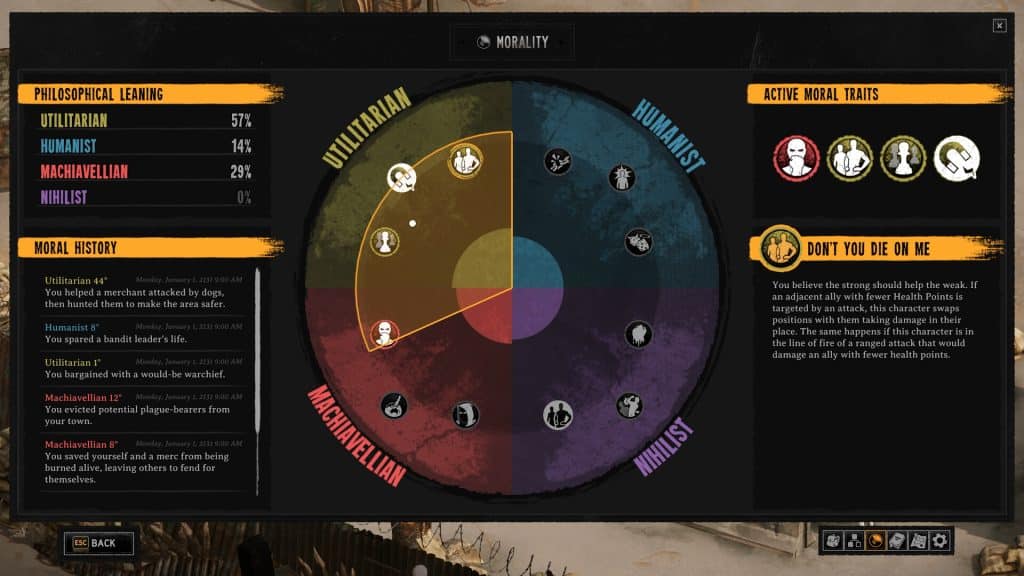
Broken Roads opens with a personality test, quickly revealing its main allure: the Moral Compass. The Moral Compass is composed of four quadrants: humanist, nihilist, utilitarian and Machiavellian. Within those four lies your “world view,” a varying range that can envelop different Moral Traits to aid conversations in new, interesting ways. Solely stick to making selfish decisions and constantly scoff at the idea that anything else in the world is of any import and the world view range will narrow as it grows towards the outer edge of nihilism. Continued selection of similar choices makes the player character more narrow-minded, but it also opens up those further out Moral Traits.
Sure, you could sprinkle in some Machiavellian and maybe even a dash of utilitarian ideals in there, but that would push the player character to become more broad-minded. Thus they would have access to more Moral Traits across more quadrants, but only those that lie lower in each since the width of the world view range lessens as the length increases. Your response to the ethical quandaries littering the Armageddon-ravaged Australia will help shape a unique Moral Compass compared to others.
It’s a system that sounds bold and exciting on paper, but it’s one that ends up being as thin as said paper. For all the setup Broken Roads goes through to make the player believe they are setting out on a quest rife with morally ambiguous dilemmas, it ends up supplying fairly common scenarios that virtually every other post-apocalyptic game includes. It’s a shame to see such straightforward decisions facing what should have been an intricate moral system. And to make matters worse, the choices made often feel inconsequential. The weight of the Moral Compass all but dissipates as it’s realized that risk and payoff are minimal. Swaying mayoral elections, undermining leaders, risking life and limb to save another and more present themselves throughout the story of Broken Roads, but they largely felt like they took place in a void and failed to ripple out into the greater narrative.
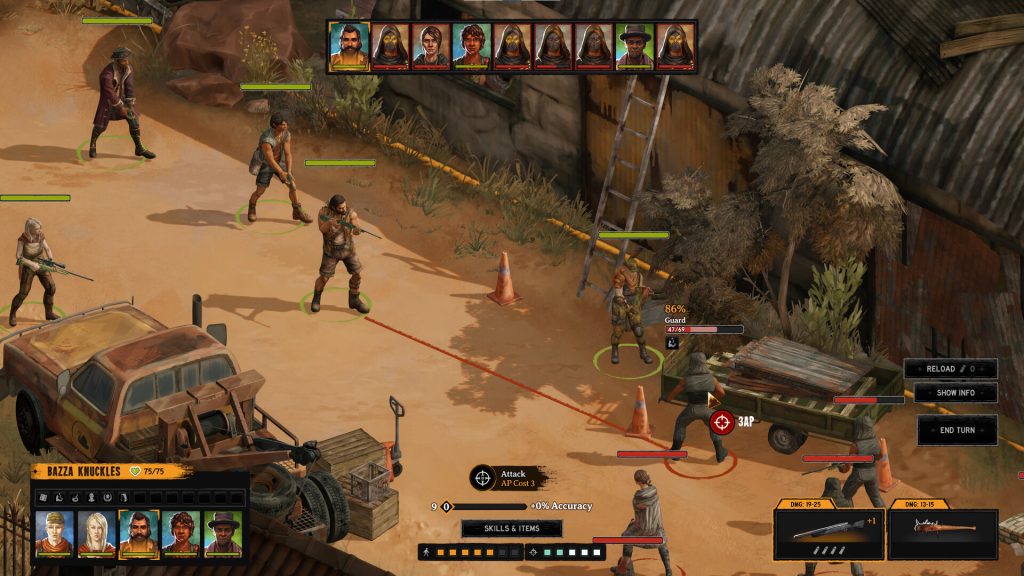
The journey, although not as morally complex and ethically challenging as one might have been led to believe, is not one that is taken on alone. Companions can be enlisted to aid the player, although their use seems largely confined to combat. It wasn’t long before the automatically-leveled companions at my side exhausted their available dialogue options. And they rarely had much to say about my own actions or decisions. Despite each character’s alignment, consistently pushing in the opposite direction didn’t seem to have any notable effect. Unlike other RPGs, there is zero risk in performing upsetting actions to these devout end-of-the-world warriors. But, hey, at least they can stand their ground in a gunfight.
It’s too bad the turn-based combat isn’t all that exciting, either. Ranged and melee attacks are at the player’s disposal, but much like the rest I’ve covered there isn’t much depth. In fact, players can breeze through the combat encounters without much thought about tactics. Tactical options that do exist, such as taking cover, but the barebones combat mechanics made it simple to push through all challengers with relative ease. A handful of skills exist, but there are far from enough variety in it all to give combat a meaningful evolution over the 20-25 hour campaign. And that’s not even accounting for other detrimental components, like moments of glitchy target selection. Unfortunately, the glitches extend beyond combat, reaching dialogue and story progression as well, leaving us with the impression that Broken Roads needed additional development time.
Broken Roads: Broken Roads is a riveting concept dragged down by disappointing execution. The Australian slang-containing dialogue and hand-drawn landscapes provide moments wherein a better game could have existed, but virtually everything else fails to make a notably positive impression. Lackluster combat, unimpactful choices and an underutilized Moral Compass all form into a mess of unmet expectations and unrealized potential. – Joshua
Editor’s Note: Broken Roads was reviewed on PC, and a copy was provided to us for review purposes.





